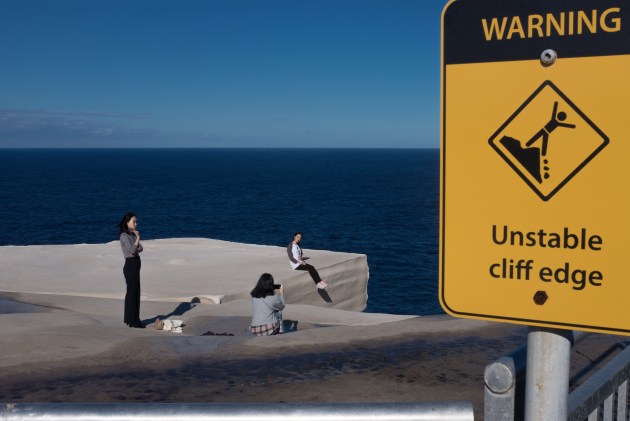The price of vanity – new research says selfie-related deaths are a 'public health problem'
A report has confirmed something many of us have probably all suspected - selfie related deaths have become a 'public health problem'.
The report by the University of New South Wales has shed light on the rising death toll of people pursuing risky selfies in outdoor destinations.

The research revealed 379 fatalities since 2008 - a death toll that all but confirms the practice as a legitimate public safety crisis.
It was found that of those deaths, falling from cliffs and waterfalls were the most common selfie-related death, followed by drowning in fast-moving waters such as rivers.
Incidents are more likely in young adults, particularly males, with the average age of victims just 22.
According to the report, as teens and 20-somethings prefrontal cortex development is still progressing, they remain prone to impulsive choices, and will often prioritise immediate gratification over safety.
UNSW researchers say that particularly in Australia and the United States, many killed are travellers or tourists. Locally, selfie takers tend to be injured or killed while solo, and commonly in locations difficult for emergency services to access.
In countries such as India and Pakistan, selfie takers are more likely to die, tragically, as a group, especially near bodies of water, such as lakes.
Among the recent selfie-related accidents in Australia was a Brazilian woman, Fernanda Morella, 33, who was believed to have fallen to her death at Kangaroo Point cliffs while celebrating her birthday in Brisbane, in 2021.
Last year it was confirmed that more Australians than ever were dying while taking selfies.
The deaths have occurred despite some attempts to limit deaths in public places. In 2018, the NSW police were brought in to stop selfie-takers at Wedding Cake Rock, after concerns were raised that the iconic natural formation would collapse.
The report by UNSW argues tourist destinations and social media apps need to shoulder responsibility for the statistics by implementing safeguards like warning signs and better communication about the dangers of certain areas.
However, the report acknowledges that even strict boundaries may prove ineffective against thrill-seeking users fixated on capturing boundary-pushing selfies at any cost to impress peers and strangers on social media.
"To date, little attention has been paid to averting selfie-related incidents through behaviour change methodologies or direct messaging to users, including through social media apps,” the report said.
"It may be prudent to also engage in direct safety messaging to social media users," the study suggested.

